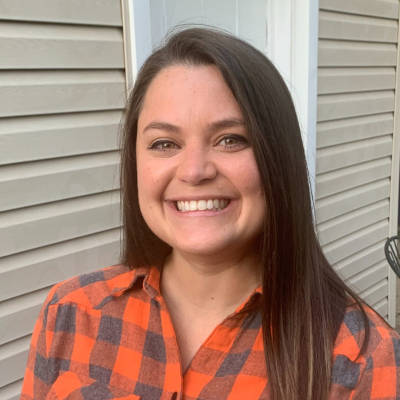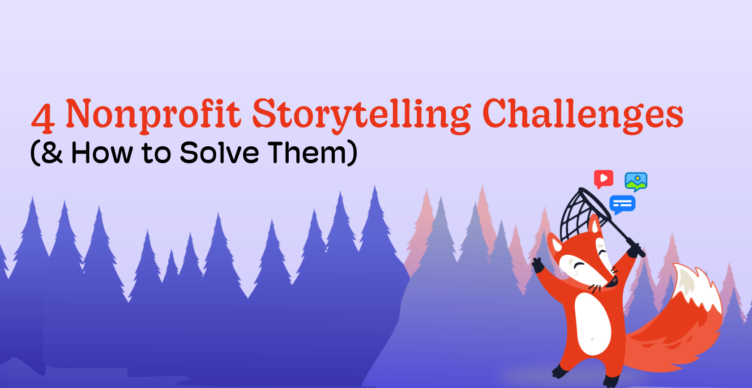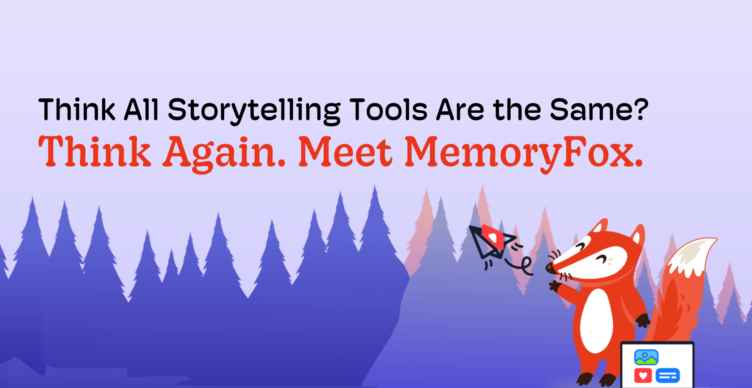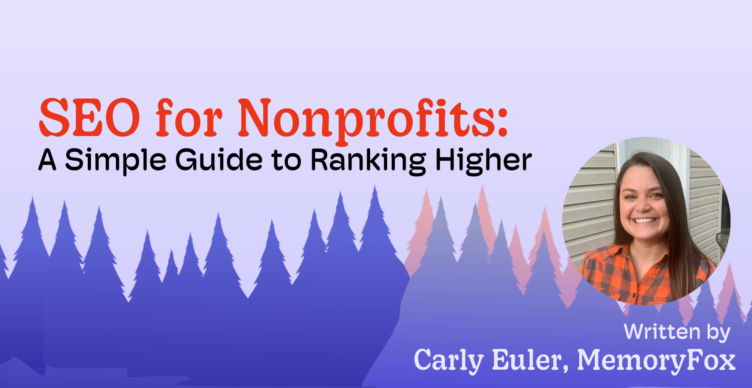Ethical Storytelling, Story Collection Tips
5 Strategies to Get Program Staff to Share Impactful Stories
Storytelling is one of the most powerful tools nonprofits have readily available at their fingertips. Whether it’s in a fundraising appeal, a social media post, or a video on your website, the stories of the people you serve connect your mission to potential donors, volunteers, and supporters in a way that statistics simply cannot do alone.
However, despite its importance, we understand that collecting and sharing meaningful impact stories can be challenging. At many nonprofits, program staff work directly with beneficiaries, forming close relationships and often acting as their advocates. Because of these connections, program staff may be hesitant to introduce development or fundraising teams to beneficiaries, worried that their stories might be misrepresented, exploited, or shared without proper consent. This hesitation is understandable, especially if ethical storytelling practices haven’t been fully explained or meaningfully deployed.
As a nonprofit fundraiser, you might find yourself wondering: “How do we convey the importance of collecting stories to our program staff?”
We posed this question within the 2023 Ethical Storytelling Report, and we received ten thoughtful answers that can be compiled into five themes. In this article, we’ll explore these five compelling strategies for how to get program staff to share stories with your nonprofit fundraising and marketing teams.
Strategy # 1: More Stories = More Funds, & More Funds = More Resources
Stories drive donations—there’s no denying it. According to Classy, fundraising campaigns that include videos generate 114% more funds than those that do not. (And if that statistic isn’t convincing enough, check out this list of 10 nonprofit storytelling statistics).
By sharing more stories, especially impactful ones directly from the people you serve, you are opening the door to increased resources for your programs. Program staff should know that the more often you share powerful stories, the more likely you are to secure funding that supports the essential work they do.
Strategy #2: Build Trust By Proving You’re a Good Story Steward
 One of the best ways to ease hesitation from program staff is to demonstrate your commitment to ethical storytelling, and by extension, your commitment to the stewardship of the stories that belong to the people you serve. Explain to your program staff how you properly handle consent, keep stories secure, and respect the dignity of storytellers. When program staff see you have processes in place to treat stories with care, they’ll feel more comfortable introducing you to beneficiaries.
One of the best ways to ease hesitation from program staff is to demonstrate your commitment to ethical storytelling, and by extension, your commitment to the stewardship of the stories that belong to the people you serve. Explain to your program staff how you properly handle consent, keep stories secure, and respect the dignity of storytellers. When program staff see you have processes in place to treat stories with care, they’ll feel more comfortable introducing you to beneficiaries.
Strategy #3: Bring Them Into The Process By Elevating Their Stories
Don’t forget – Your program staff already have incredible stories to tell! They are the individuals who experience the impact of your nonprofit’s work firsthand, and are the first ones to see transformations over time. Don’t miss the opportunity to tap into their knowledge and passion. Recognizing their experiences and efforts through storytelling not only boosts morale but can also bring a unique and authentic perspective to your fundraising campaigns. Here are a few prompts that can spark great stories from program staff:
- How does [our organization] make our community a better place?
- What’s your favorite thing about working for [our organization]?
- Tell us about the people we serve, and why our mission is so important.
- What’s the most rewarding part about working with [our organization]?
- What is the toughest decision you’ve had to make in your department?
Strategy #4: Promote Transparency By Sharing Your Storytelling Plan
Just as you’re transparent with your storytellers about how their stories will be used, it’s important to be just as open with your colleagues. Explain the full storytelling process—from obtaining consent, to maintaining confidentiality, to outlining the timeline for publication. When program staff know what to expect, they’ll feel reassured and be willing to help connect you to individuals who are ready to share their stories.
Strategy #5: Make it an Organization-Wide Policy
Ethical storytelling isn’t just a tool for fundraising—it’s a crucial part of spreading your nonprofit’s mission and values both internally and externally. Create an organization-wide policy that outlines the steps your organization is committed to taking as it relates to ethical storytelling.
If you are wondering how to get started, don’t worry! Here are the 8 things to include in your ethical storytelling guide:
- Deficit-based phrases to avoid
- Strength-based alternatives & replacement phrases
- Mission-focused terms
- Communications guidelines, sorted by channel
- Examples of inspirational nonprofits
- Exercises to practice the new language
- Commitment to reevaluation
- Team signatures
The key to building an ethical storytelling guide is to make it a collaborative effort between the program, development, and fundraising teams. When everyone is on the same page, storytelling becomes a shared goal that contributes to the success of the entire organization.
By putting ethical storytelling at the forefront, you will build trust with your program staff which will unlock a treasure trove of powerful stories that amplify your nonprofit’s mission. These stories don’t just inspire donors—they create a lasting connection between your work and the communities you serve. Use these strategies to empower your program staff to share the voices they know best, transforming hesitant collaborators into storytelling champions. Together, you’ll create a story bank that fuels your fundraising, drives deeper engagement, and, most importantly, honors the dignity of those you serve.

About the Author
Carly Euler
Marketing Director, MemoryFox
Carly comes from the nonprofit world ready to elevate the hundreds of nonprofits in the MemoryFox community. She currently serves as the Co-Chair of the Wily Network’s Young Professionals Association, and has previously held positions at the Breast Cancer Coalition of Rochester, the Code of Support Foundation, Kenya Lacrosse Association, and the BOMA Project, where she has specialized in marketing, communications, and fundraising. Storytelling has been an integral part of each role.




